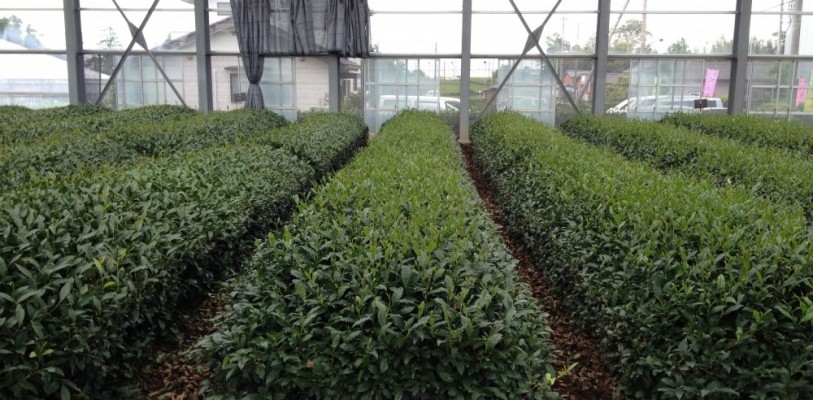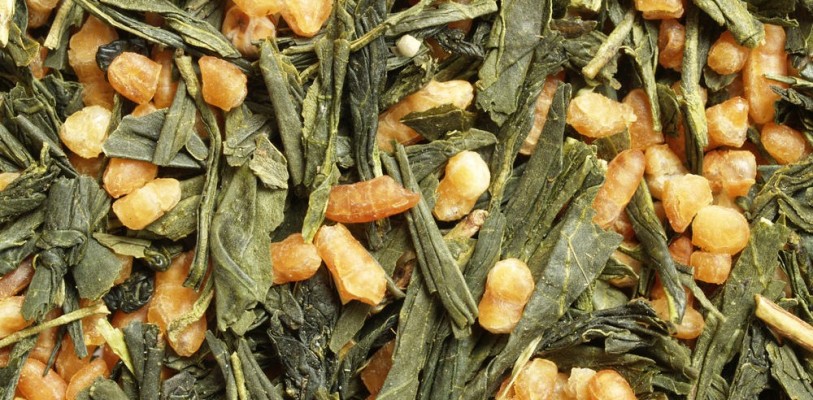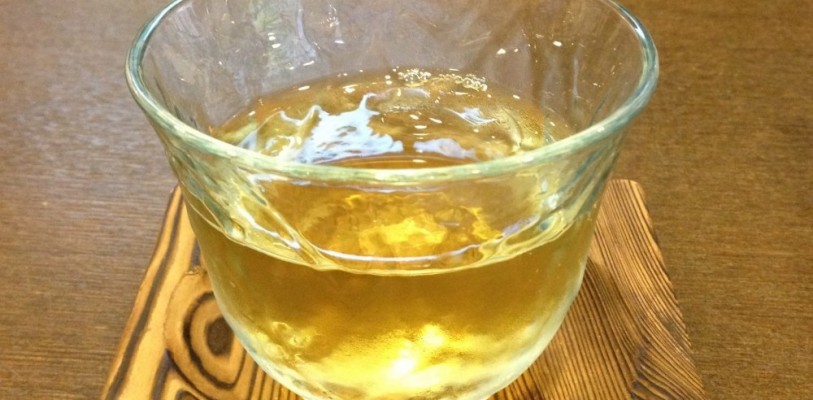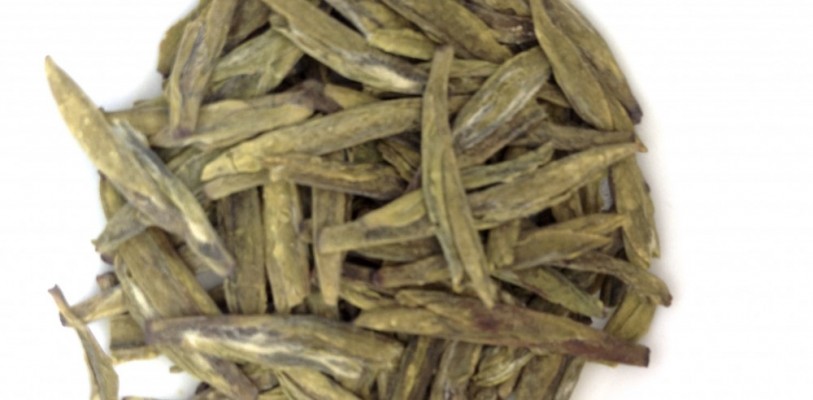
Longjing tea (long–jing) is one of the most famous high-end teas in China. You may also know it as Dragon Well green tea. Longjing is the Chinese word, and Dragon Well is the English translation.
Whatever you decide to call it, the tea leaves come from the Longjing mountains surrounding Xi Hu (shee–hu), a large beautiful lake, known as West Lake in English.
West Lake is located in Hangzhou (han–jo) city in Zhejiang (je–ji–ang) province, a few hours southwest of Shanghai. It is a popular destination with Chinese tourists because of its rich history, picturesque lake, and tea terraces that rise up over the mountains.
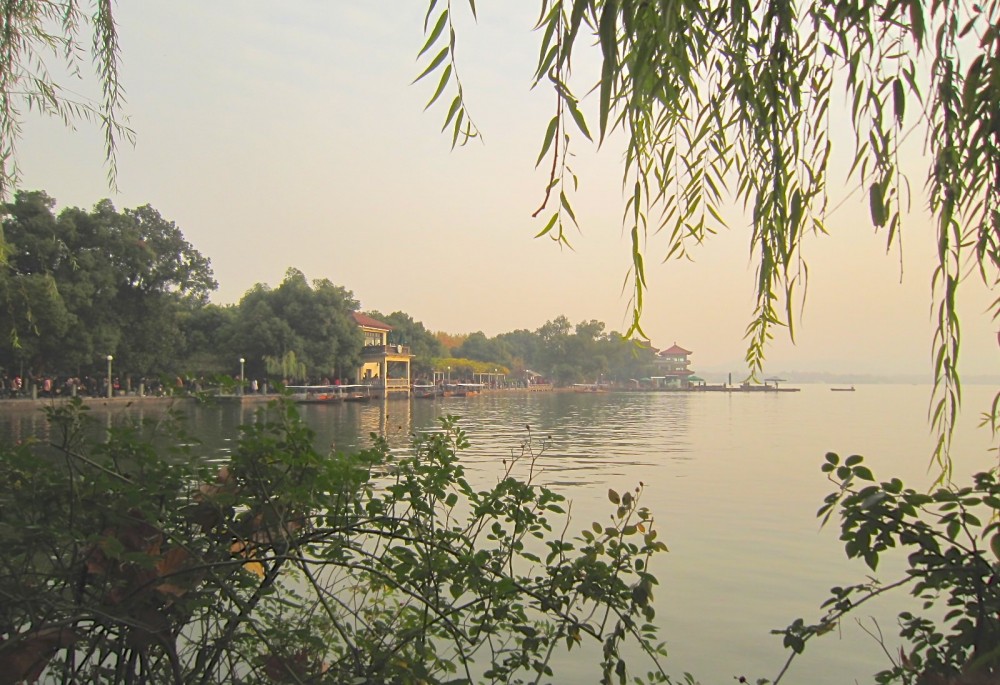 West Lake, Hangzhou
West Lake, Hangzhou
I lived near West Lake for a year, so I had a chance to stroll through the tea plantations and see the farmers growing and producing tea, the same as they have been doing for hundreds of years.
Like all green teas, longjing tea is unfermented. To stop the oxidation process, the tea leaves are pan-fried. This is a major difference to Japanese green teas, which are steamed. This is why there are so many different varieties of Japanese and Chinese green tea.
Longjing green tea leaves have a smooth, flat shape. High quality leaves are a rich green color. Low quality leaves are a darker green color and usually include crushed leaves with a blue hue.
When brewed, high quality teas have a clear, bright green color. Low quality teas are not as emerald green, but more of a yellowish green.
A high quality tea has a mellow, refreshing taste. A low quality tea has a mild taste, and can be slightly bitter.
High quality teas are very fragrant and have a long-lasting aroma. Low quality teas only have a very slight aroma.
The most common method of brewing these days is simply to put the leaves in your glass and pour hot water over them. Then, wait a few minutes for the tea leaves to sink to the bottom of the glass and it’s ready to drink.
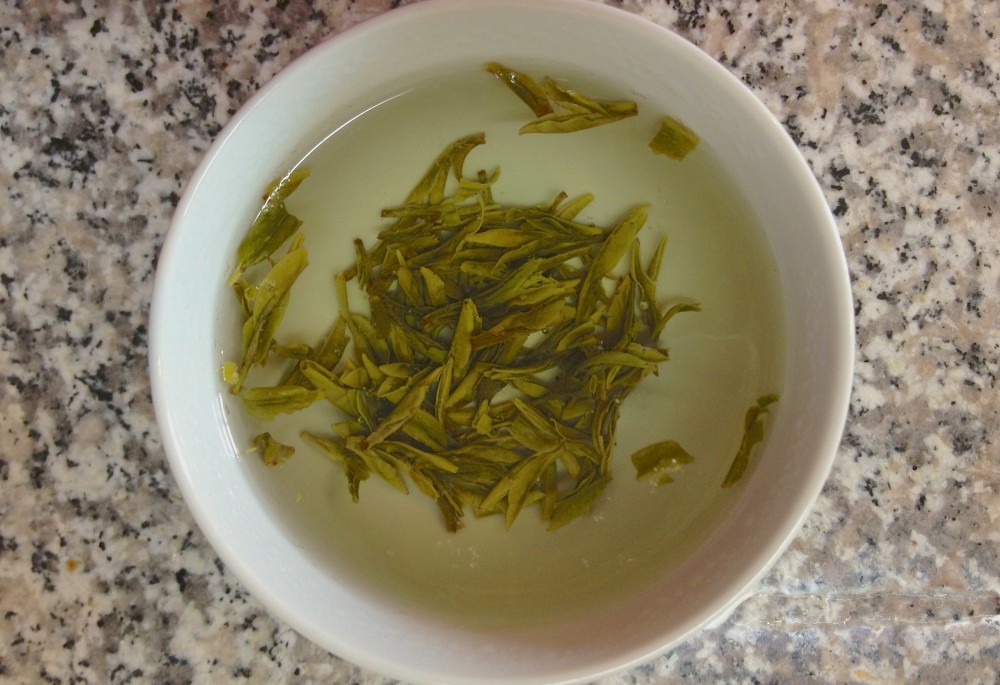 Dragon Well Green Tea
Dragon Well Green Tea
For best results, the ratio is about 1 gram of tea leaves per 50 ml of water. Boiling water is not recommended because it will increase the bitterness of the tea.
5 grams tea leaves
250 ml hot water (80 ˚C)
Steep for 2 – 3 minutes.
According to a study of 21 samples of West Lake Dragon Well tea in China, researchers found an average of 42 mg of EGCG and 33 mg of caffeine.
Total Catechins 76.51 mg
EGCG 41.84 mg
Caffeine 33.27 mg
Hu, P. & Huang, W. (1997). The origin of Longjing tea. Journal of Chinese Tea Processing, 2, 39–40.
Kunbo, W., & Jianyun, R. (2009). Analysis of chemical components in green tea in relation with perceived quality, a case study with Longjing teas. International Journal Of Food Science & Technology, 44(12), 2476–2484.
